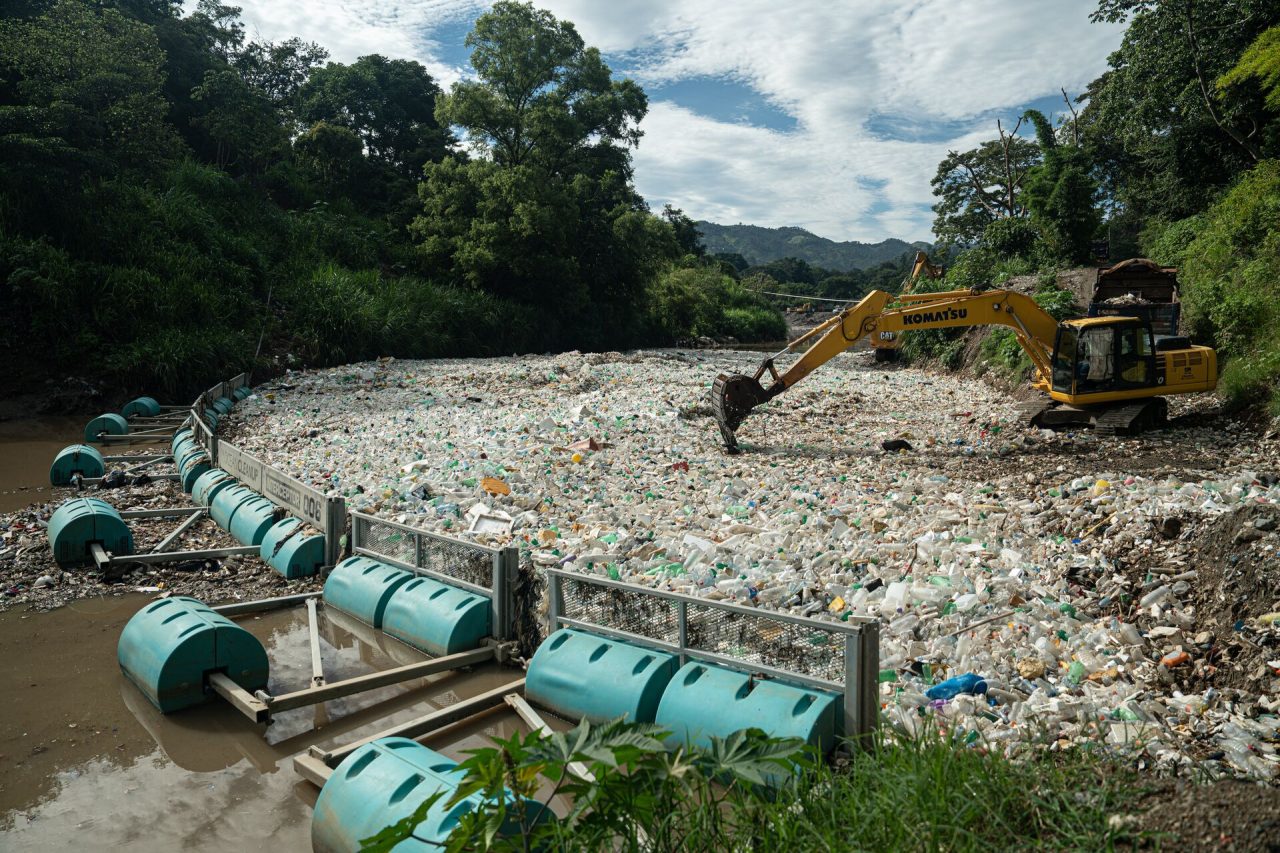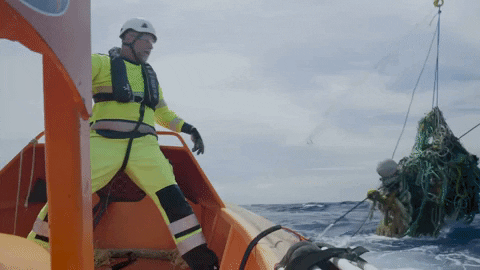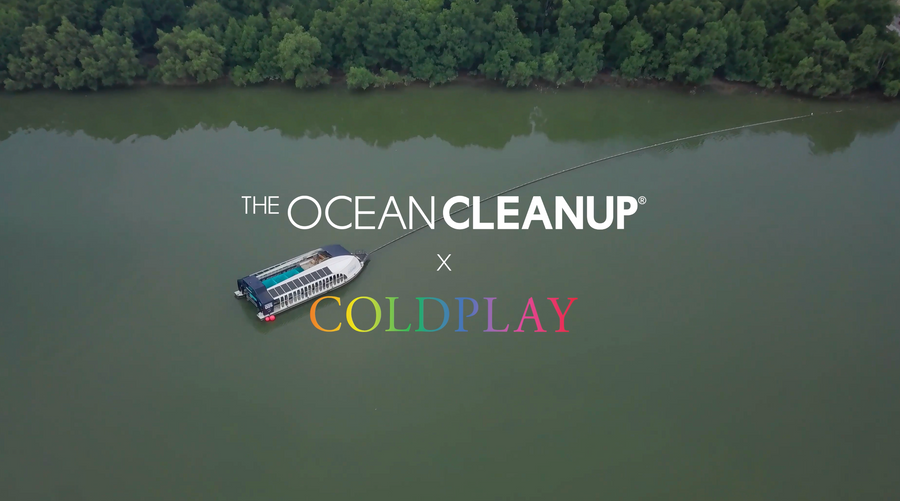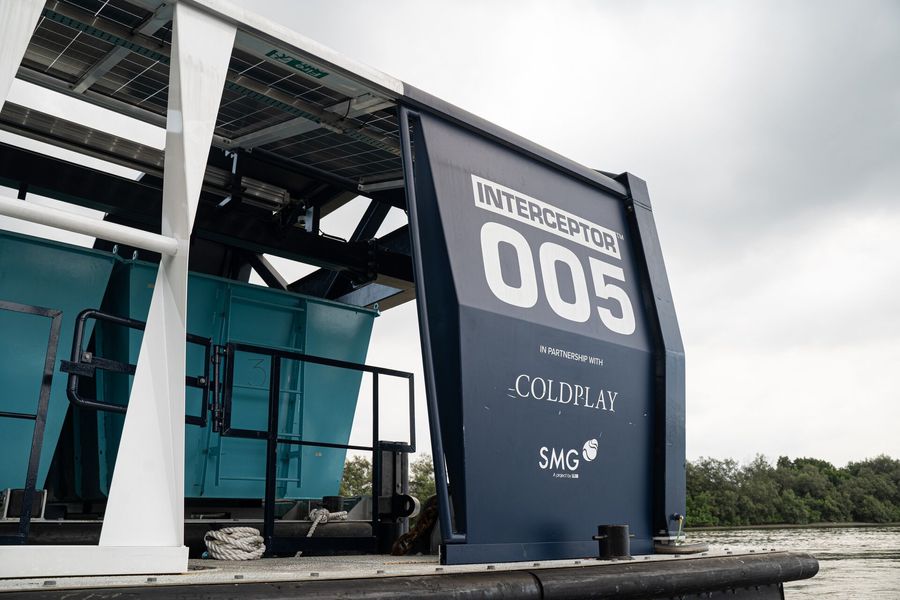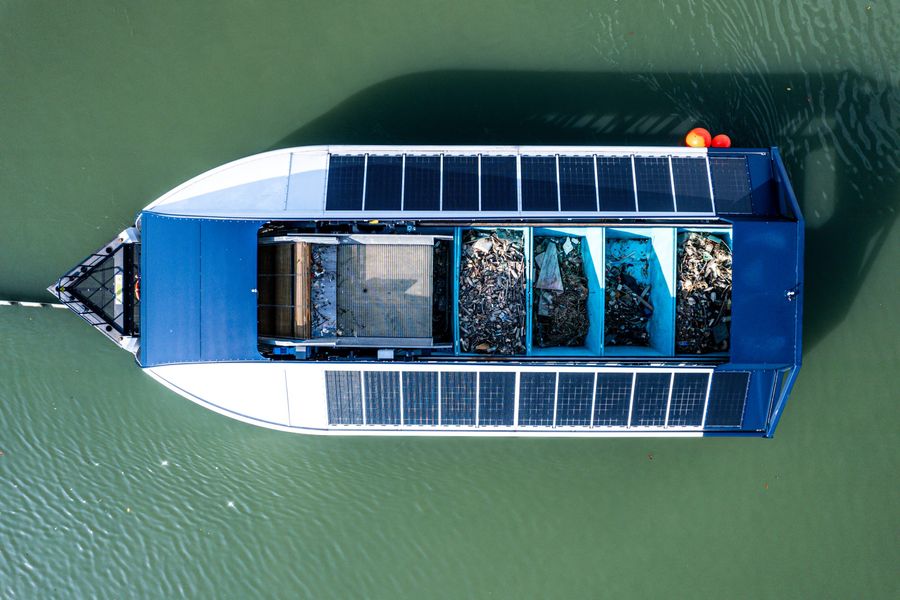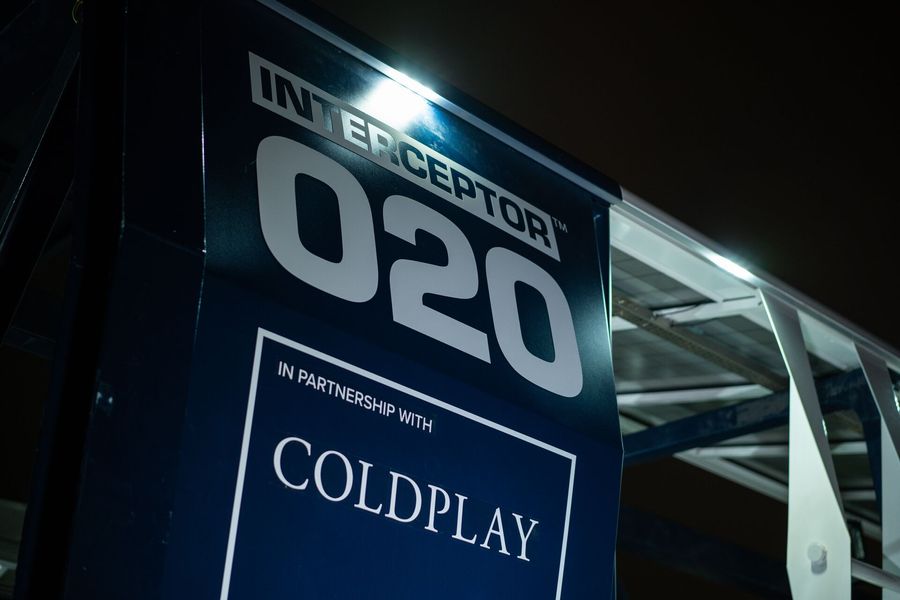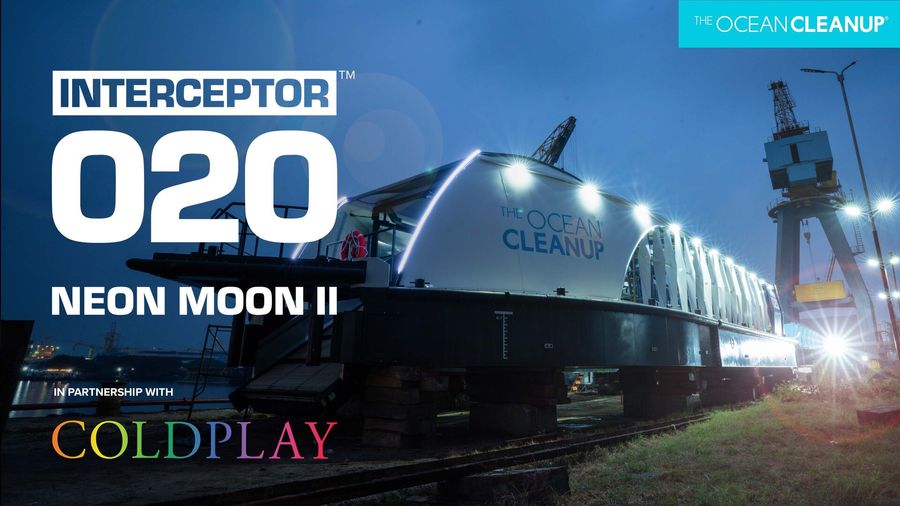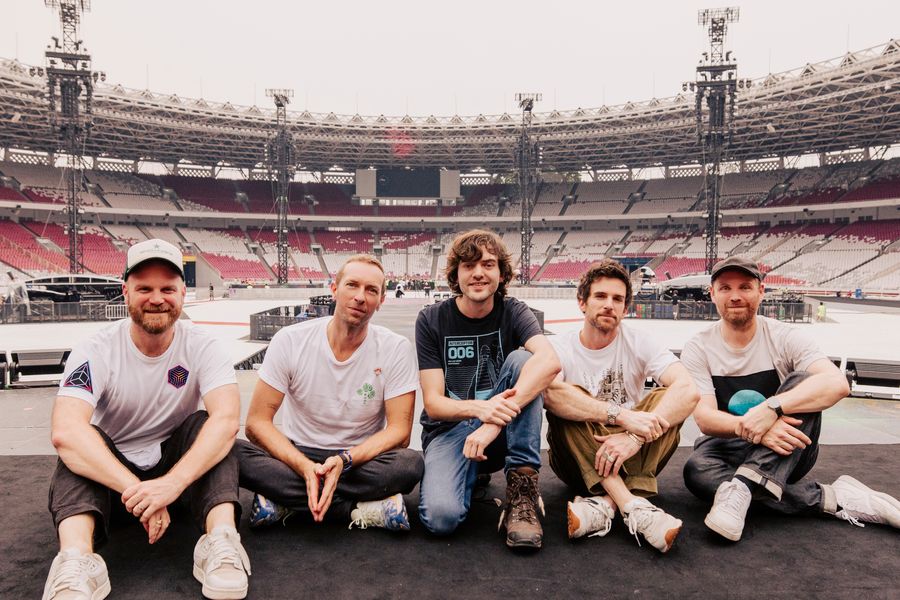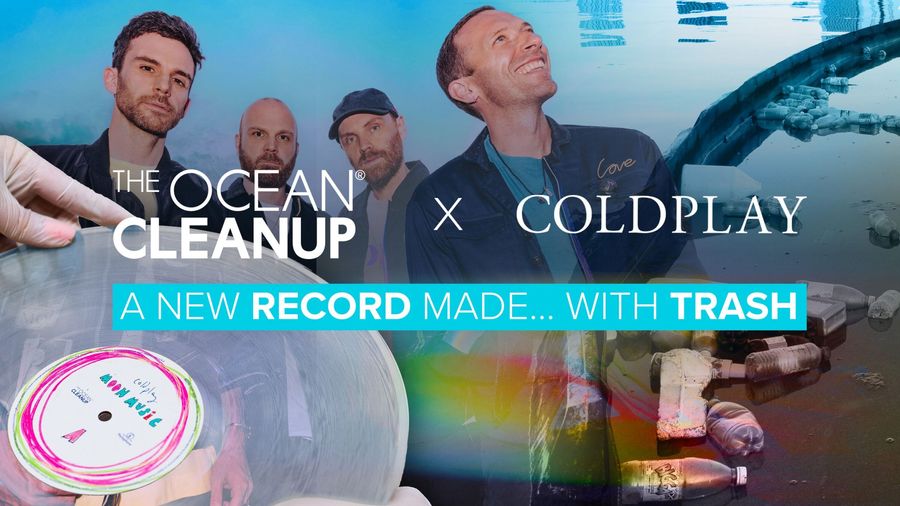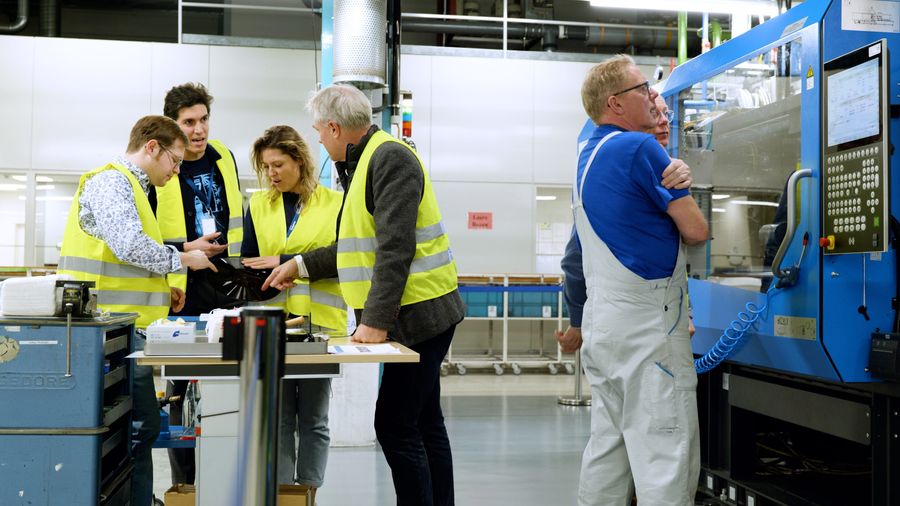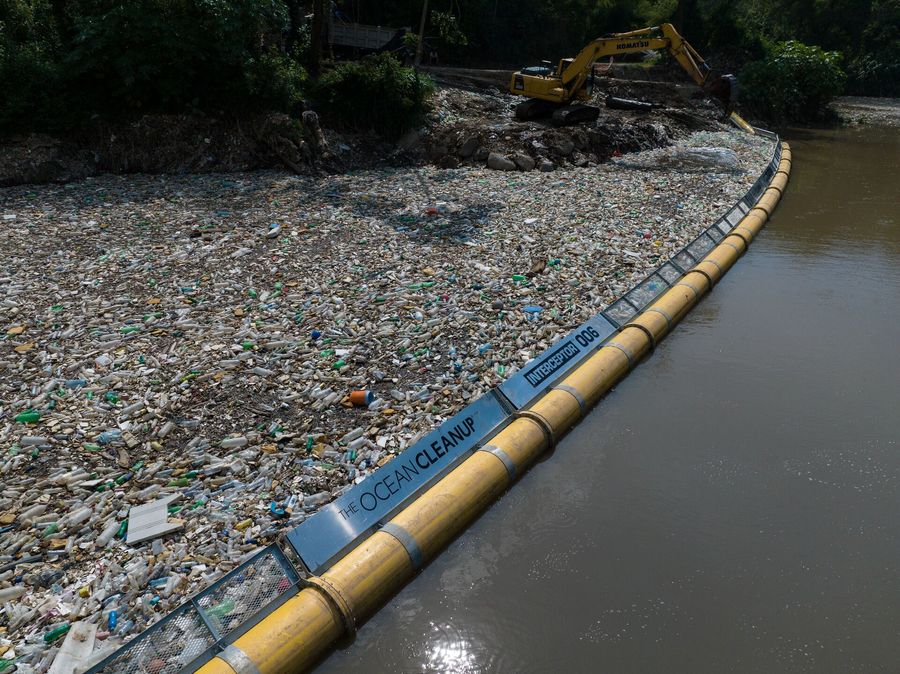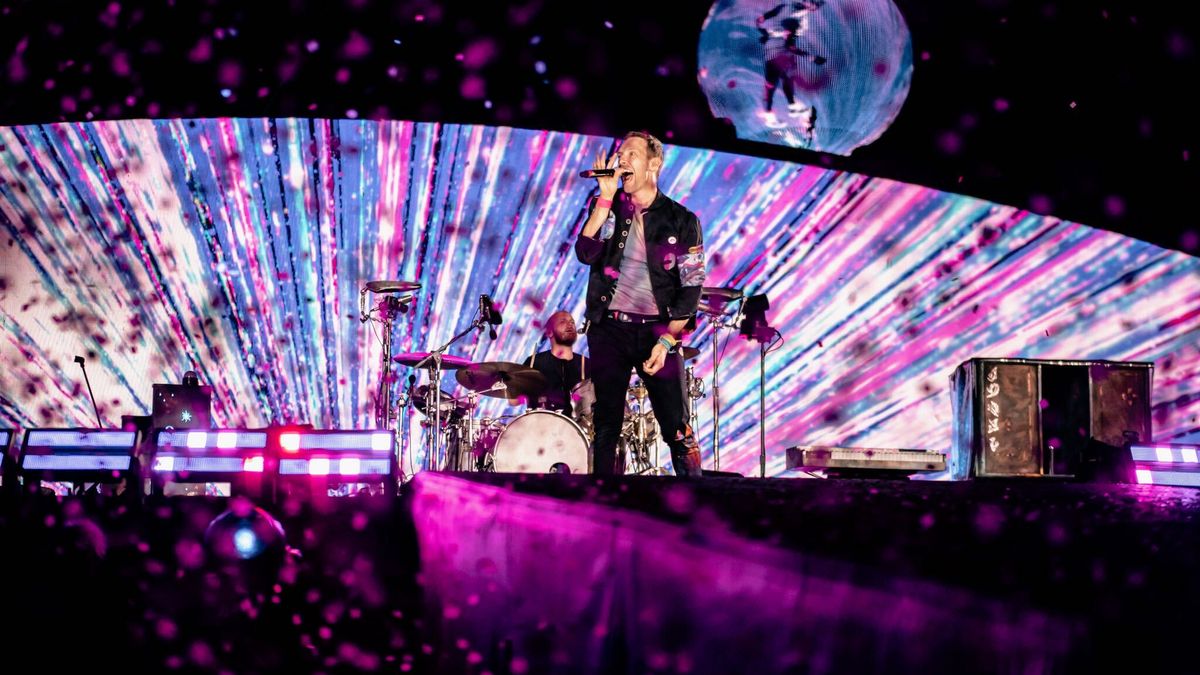
Coldplay
Coldplay is a long-standing partner of The Ocean Cleanup – sponsoring Interceptors, providing financial assistance, and sharing our mission with millions of fans worldwide. Here’s how one of the world’s biggest bands became an essential supporter of the largest cleanup in history.
The mission of The Ocean Cleanup is to rid the oceans of plastic – and nobody can achieve such a massive ambition alone. Coldplay is one of biggest bands of all time, and with a voice reaching hundreds of millions, one of the most impactful. This platform allows the group to support a range of philanthropic, charitable and environmental causes – including the largest cleanup in history.
Great to see you in Amsterdam @coldplay! Thank you for all your support pic.twitter.com/V9pagpVTsK
— Boyan Slat (@BoyanSlat) July 17, 2023
Coldplay’s support for our work extends around the world, matching the scale of the global plastic pollution problem. The band has supported Interceptors in Southeast Asia, repurposed plastic intercepted in Guatemala, and spread awareness of our mission to millions of their fans during their record-breaking Music of the Spheres tour.
Coldplay’s partnership with The Ocean Cleanup officially began in 2021 when the band sponsored Interceptor 005, which was given the unique name of ‘Neon Moon I’ and deployed in the Klang River in Malaysia.
Interceptor 005 was the second Interceptor deployed in this river by The Ocean Cleanup (after Interceptor 002). Together these deployments have stopped millions of kilograms of trash from reaching the ocean and contributed to a cleaner environment for riverside communities.
Following the positive impact of Interceptor 005, the band and The Ocean Cleanup discussed new possibilities as our mission to rid the oceans of plastic began to expand. Coldplay continued to provide financial support for our operations, and confirmed sponsorship of a second Interceptor in Southeast Asia – Interceptor 020, intended for deployment in Indonesia.
Coldplay’s support also extended to their live shows. The group featured footage of Interceptor 005 and The Ocean Cleanup’s operations in the Great Pacific Garbage Patch on huge screens before concerts. At hundreds of live venues, millions of people from all corners of the world were introduced to The Ocean Cleanup’s work and encouraged by Coldplay’s support of our mission. The band even provided our crew members with tickets to sold-out shows in the Netherlands and Malaysia.
In 2024 the partnership reached a new level. Following the huge impact of Interceptor 006 in Guatemala, Coldplay enquired about producing a limited edition LP version of their latest album using plastic we had intercepted.
This provided a unique opportunity to create sustainable and innovative impact through our partnership. Coldplay had helped us deploy Interceptors and supported our goal of tackling plastic pollution worldwide. Now we had the chance to ensure this plastic never returned to the ocean by working together on a durable and recyclable product.
Ensuring the necessary quality was a long and challenging process involving multiple partners and intense quality control testing. The final product contains a blend of 70% PET river plastic intercepted by Interceptor 006 and 30% recycled waste PET bottles from other sources.
The Notebook Edition physical LP release of Coldplay’s 2024 album ‘Moon Music’ is manufactured using plastic intercepted, and removed from the Rio Las Vacas, located near Guatemala City and one of the world’s most polluted rivers.
As this was our first product of this kind, we also needed to ensure our material was fully traceable and create a sustainable value chain, to show integrity and give fans confidence that their LP really was made using intercepted plastic. Working closely with Coldplay and with our other respected partners around the world allows us to guarantee the values we share are upheld in all that we do together.
Coldplay’s unique platform is a perfect match for our global and urgent mission. Our growing partnership shows how innovative and forward-thinking collaborations can help artists and manufacturers move towards more sustainable models, while bringing us closer to ridding the oceans of plastic.
